The reason dogs make such great pets is that they're so responsive to humans; our two species have a kind of understanding with each other due to the symbiotic relationship that we have. This makes it easy for us to train them to behave in an acceptable manner in our homes.
One major training goal, and a hurdle to overcome when we first get a new puppy is potty training; making sure they know where it is appropriate to relieve themselves. The method of doing this successfully involves a loving attitude, positive reinforcement, persistence and consistency.
When Should You Start?

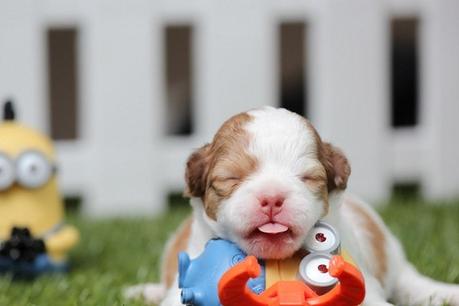
Just like a toddler, a puppy isn't fully aware of their bowel and bladder movements nor do they have any control over them until they reach a certain age. For a puppy it's somewhere between 12 and 16 weeks old.
This is the best time to start potty training the pup as it will be able to begin to learn to hold off from relieving itself. Starting early is the best way to go as you can start to enforce desirable habits before they learn bad ones.
You may have rehomed the puppy at an older age and you don't know what kind of potty training it has had already, it may have had none at all! If this is the case it may take more time to potty train them in order to break the old habits, and so patience is key.
The First Steps

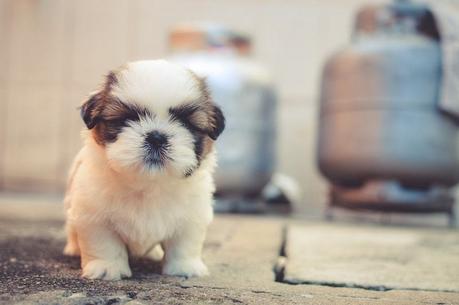
It's important to note initially that the more effort and diligence you put into housetraining your pooch the more effective your efforts will be. This means being ready to take your puppy outside at any point you notice the signs that they need to go.
Define Their Space
The first thing that's highly recommended to do when you first get a new pup, is to restrict them form having free roam of the house. Keeping them in a certain room by using a pet crate is an effective way at restricting them form learning anywhere but outside is the bathroom.
Let them outside at regular intervals, from 30 minutes to an hour for them to use the bathroom. As they learn that outside is the bathroom area, you can gradually start to increase the amount of freedom they have to roam in the household.
Keep a Regular Schedule
Not just with their pooping but with their feeding too! Make sure to feed them at the same time every day and take their food away when feeding time is done. This does not only help with potty training, but it also prevents vermin, and helps to manage your pet's weight.
Always make sure to let them out the last thing at night just before they are left alone for an extended period of time and then again as soon as you can in the morning.
Avoid Punishment

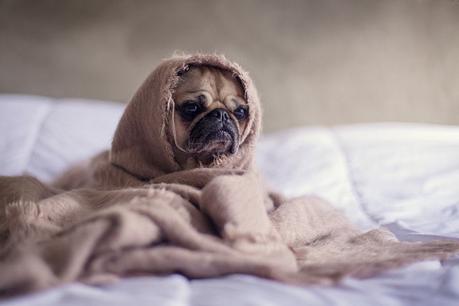
There's no use in punishing your puppy if it does make a mistake, this will only confuse them. If you notice them 'going' in the wrong place, you could clap loudly to let them know this is the wrong behaviour.
Stay with Them

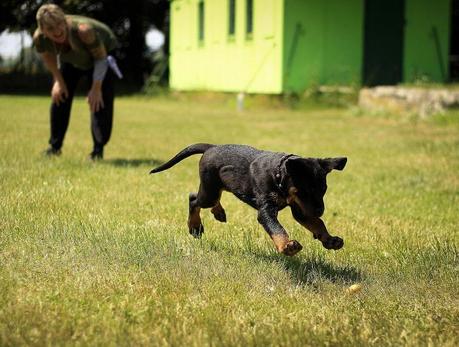
While they are outside, stay with them too make sure they have been. This way you will know if they feel comfortable going outside at all. If you have let them out and they haven't relieved themselves when they are expected to do so, take a little longer until they do.
Keeping the Momentum

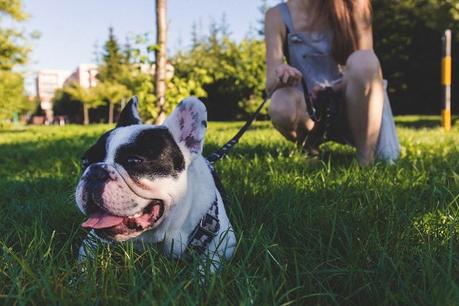
In the initial stages of training, your puppy should be getting an idea of a daily schedule, and that they are indeed going outside every day which is their opportunity to relieve themselves.
After a week or two of keeping them confined to a particular space and gradually letting them have more of an ability to roam freely they may still answer the call of nature inside from time to time. This is when you start to differentiate right from wrong.
Acknowledge the Signs

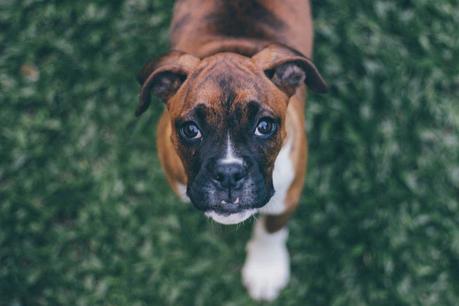
By now you have become more familiar with your pup and should have an idea of their body language. If they need to use the toilet, they'll start circling a spot, whining, sniffing or even barking and these can be indicators that they need to go.
If you notice any of these occurring, call your dog outside or pull them gently via their collar remembering that if they do have an accident, it just means they do not yet understand. If they start scratching at the door, this means that they are getting it, it's a sign of achievement!
Praise and Affection
At this point in their training, it's a good idea to start praising them, rewarding them with treats and showing great affection for when they do go outside. This will reinforce to them that you are pleased with their behaviour as opposed to the lack of affection they get from going to the toilet inside.
Consistency and Persistence
It's a case of keeping the same routine daily, taking them to the same spot to do their business, praising them when they do good and ignoring them when they don't. After a while they will get it but it can take up to a year for a puppy to become fully house trained.
Even if you feel you are getting somewhere and you find an accident has occurred but you didn't see it happen, don't rub your dog's nose in it as it will not be able to understand you anyway and it will result in your dog fearing you which is not a healthy relationship to have.
This training experience, even if it does take long, is a bonding experience between you and your new family member; it's the start of a lifelong companionship in which you both learn from each other.
Extra Puppy Potty Training Tips
- Overfeeding your puppy or an unsuitable diet can lead to more mistakes
- Salty foods can make them need to drink more increasing urination
- Feeding them too late in the day can lead to them needing to go during the night
- Use enzymatic cleaners for accidents to reduce persistent odors
- Keep them away from thick rugs, to them it's similar to grass
- Don't leave the door open at all times as this can lead to confusion when its closed
- Avoid getting a new puppy if you plan to move house during training
- Use commands other than "good boy/girl"

